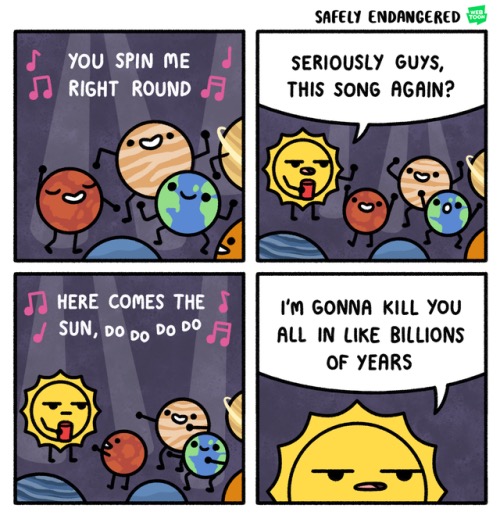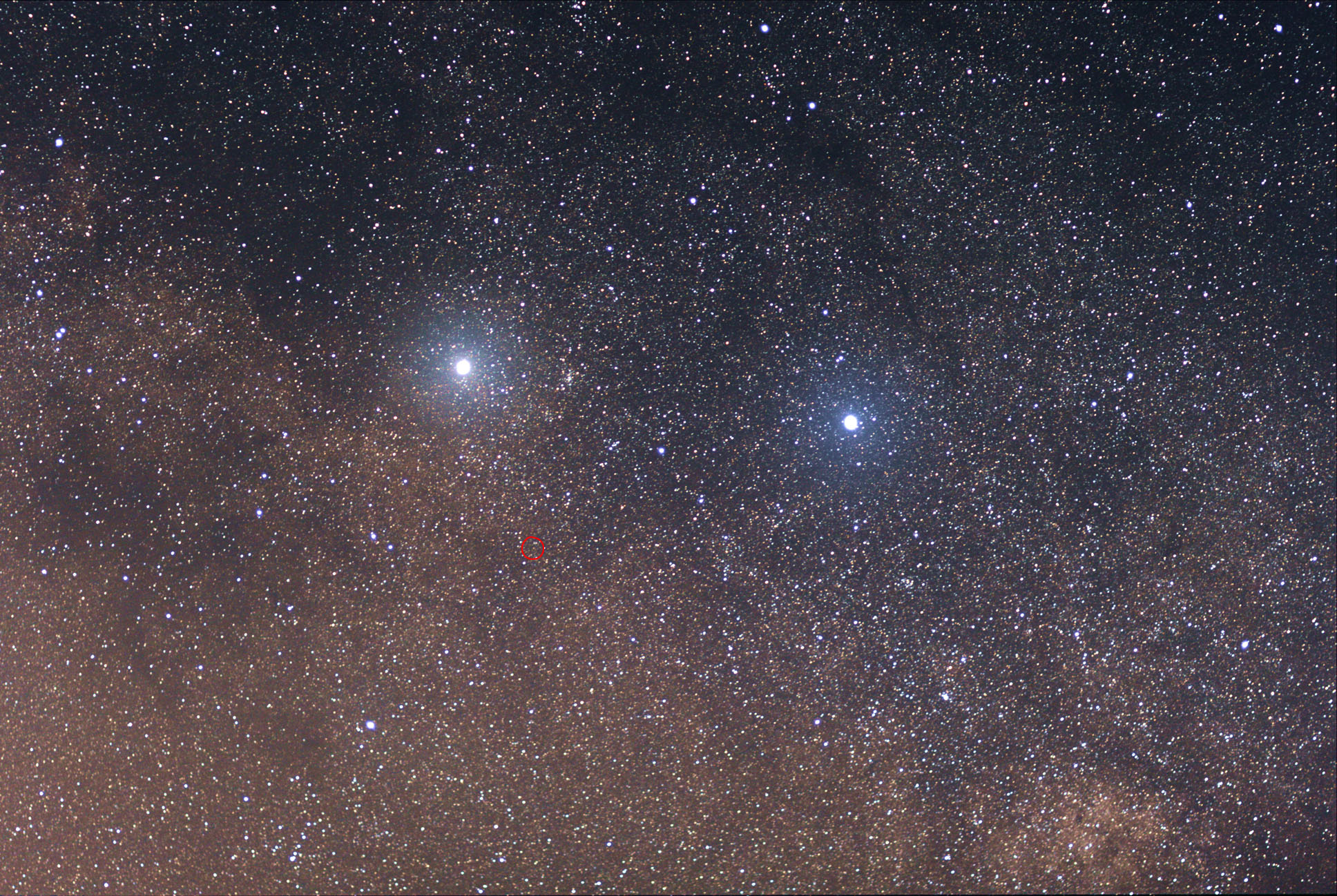Last year I wrote a post about the length of years throughout the solar system, comparing all the planets and Pluto to an Earth year. To recap: it takes Pluto 248 years to orbit the sun, 165 years for Neptune, 84 years for Uranus, a little over 29 years for Saturn, 12 years for Jupiter, 687 days for Mars, 225 days for Venus, and 88 days for Mercury. This year I thought I’d do something a little different, inspired by Voyager 2, which, on December 10, 2018, left the solar system and became the second human-made object to enter interstellar space, following Voyager 1 which crossed over in 2012.
Voyager 2 is currently moving along at more than 34,000 miles per hour, and it took a little more than forty-one years to travel eighteen and a half billion miles. Radio signals from the craft, still being sent, take about sixteen and a half hours to reach Earth. That got me thinking about speed, specifically the speed of light. Voyager 2 isn’t anywhere close to the speed of light, which is 186,000 miles per second, and technically can’t reach that speed since mr = m0 / sqrt (1 – v2 / c2 ), but that’s another story.
Light from the sun, on the other hand, can travel at the speed of light and to put things in perspective here’s how long it takes to reach different markers through the solar system:
It takes light from the sun three minutes to reach Mercury.
It takes light from the sun six minutes to reach Venus.
It takes light from the sun eight minutes to reach Earth.
It takes light from the sun about twelve minutes and forty seconds to reach Mars.
It takes light from the sun about forty-three minutes to reach Jupiter.
It takes light from the sun more than seventy-nine minutes to reach Saturn.
Does sunlight ever reach Uranus? Yes, it does, but it takes sunlight more than two and a half hours–almost 160 minutes–to get to Uranus.
It takes light from the sun more than four hours to reach Neptune.
It takes light from the sun five and a half hours to reach Pluto–just under how long it would take to fly from New York to Los Angeles, minus the time you have to spend in security, which takes about two and a half hours if they have to examine Uranus.
And it takes that same sunlight four and a half years to reach Alpha Centauri, our nearest stellar neighbor. At its current rate Voyager 2 will get there in about eighty-six thousand, two hundred years, minus the time it’ll have to spend going through security.
Will we eve get there? Maybe, but the future is very hard to predict.








Uranus jokes never disappoint Chris. It only takes about 45 minutes for a camera to go through Uranus and to territories beyond when you are getting a colonoscopy. Luckily, you get to sleep through the journey.
Fortunately we’ll never finish probing the depths of Uranus. And it is kind of cool to think that a colonoscopy takes about the same amount of time it would take to reach Jupiter at light speed. That puts a whole new perspective on that Great Red Spot.
Space travel has always fascinated me–I don’t know why we don’t spend more time and money figuring out how to do it better instead of wasting money on stupid things like war. I love that you got the de rigeur Uranus joke in there–I was listening to Gustav Holst’s The Planets the other day–did you know that Uranus is a magician?
I had forgotten that Holst calls Uranus “the magician”–thank you for reminding me of that. I know there was a lot of debate among astronomers about what to name the new planet and they really had to go deep into mythology to find Uranus.
And I’m fascinated by space travel too. My grandfather had a great response to someone he heard complaining about all the money spent on the space program. He said, “They’re spending all that money here on Earth.” And he had a good point. The space program employs a lot of people, and understanding the universe around us is the best way to understand ourselves.
It took me about 2 seconds after this blog post reached me to start wondering what you would do with Uranus, Chris, and I was NOT disappointed. Thanks for reaching us exactly the way you do.
Part of the beauty of a big universe is there’s always room for another Uranus joke, and thank you for joining me in it.